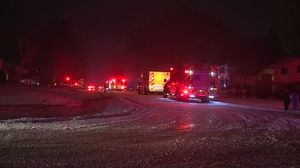Explosions linked to the continuing conflict between Ukraine and Russia have resulted in significant casualties and intensified hostilities, dramatically impacting the lives of civilians caught in the crossfire.
On December 3rd, 2023, Moscow experienced a shocking incident when Armen Sarkisian, the leader of pro-Russian armed groups, was killed following an explosion at his upscale apartment complex. Sarkisian, along with one bodyguard, was gravely injured after entering the premises’ underground area when the explosion occurred. The incident, reported by Russian state media, raises concerns of assassination, as authorities have launched investigations to ascertain the circumstances surrounding the blast. It is believed Sarkisian was actively engaged with criminal organizations operating within the eastern Ukrainian territory, consistently supporting actions against the Ukrainian government. His involvement is noted as pivotal, having helped manage supply chains for pro-Russian forces at the frontline.
Simultaneously, on February 2nd, 2024, another tragic explosion unfolded under differing circumstances. Ukrainian President Volodymyr Zelensky claimed responsibility for a missile attack on a school located within the Russian-occupied territory, resulting in the deaths of four civilians. The attack, reportedly executed via guided munitions, provoked widespread condemnation, with Zelensky stating it revealed the brutality of Russian tactics. 'This is what Russia's war looks like. They destroyed buildings even though there were dozens of civilians present,' he declared emphatically on social media, addressing the international community’s uproar. Ukrainian military sources confirmed the incident, stating, 'The attack was deliberate,' as they rescued over 80 civilians from the wreckage of the targeted building.
Reports suggest the recent attack reflects the protracted nature of the conflict, which has seen escalated violence leading to civilian casualties. Throughout the last year, there have been numerous allegations targeting both the Russian military and Ukrainian forces, with each side accusing the other of committing war crimes. This continuous back-and-forth, rife with allegations and propaganda, complicates the efforts for peace and stability.
Following the Kursk attack, President Zelensky accused Russia of showcasing itself as a barbaric state. His remarks resonate with many who view the conflict as not only territorial but fundamentally ethical, raising questions about international responsibility to intervene or mediate effectively. Most alarming is the targeting of educational institutions, where civilians expect safety, yet have found themselves under bombardment, highlighting the harrowing unpredictability of this prolonged war.
The geopolitical tensions appear to be intensifying, with Russia's Defense Ministry categorically blaming Ukraine for the crimes committed within its borders. Nonetheless, experts argue the environment of chaos suggests systemic issues from both sides, leading to such humanitarian crises. Historical patterns indicate wars often lead to existential dread among civilian populations, especially as violence escalates and with both sides claiming righteousness.
Both incidents exemplify the tragic consequences of the current geopolitical hostility between Ukraine and Russia. The targeting of civilians amid military objectives presents severe ethical dilemmas and questions around accountability. Each incident not only contributes to rising death tolls but also fuels the narratives both countries are using to justify continued offenses. The conflict's impact on civilian lives remains appalling, with the specter of violence continuing to disrupt everyday life.
With investigations pending concerning the killings of key figures like Sarkisian and the brutal attacks on schools, the international community watches closely. Humanitarian organizations and world leaders are compelled to respond against the backdrop of rising destruction, worried about the deteriorations and the ramifications on human rights violations persisting within this fraught conflict backdrop.
The patterns of violence observed fuel fears for continued unrest and suffering, as both Ukrainian and Russian people suffer under the weight of this persistent conflict. What’s painfully clear is the drawn-out suffering instigated by these actions, which haunt the memories of individuals on both sides of the border. Peace negotiations bore the risk of being undermined as acts of violence persist, leading to escalated retaliations and renewed cycles of grief.
Overall, the violence may reflect deep societal fractures on both sides, making reconciliation even more challenging with each act of aggression undertaken during this already tumultuous period.



